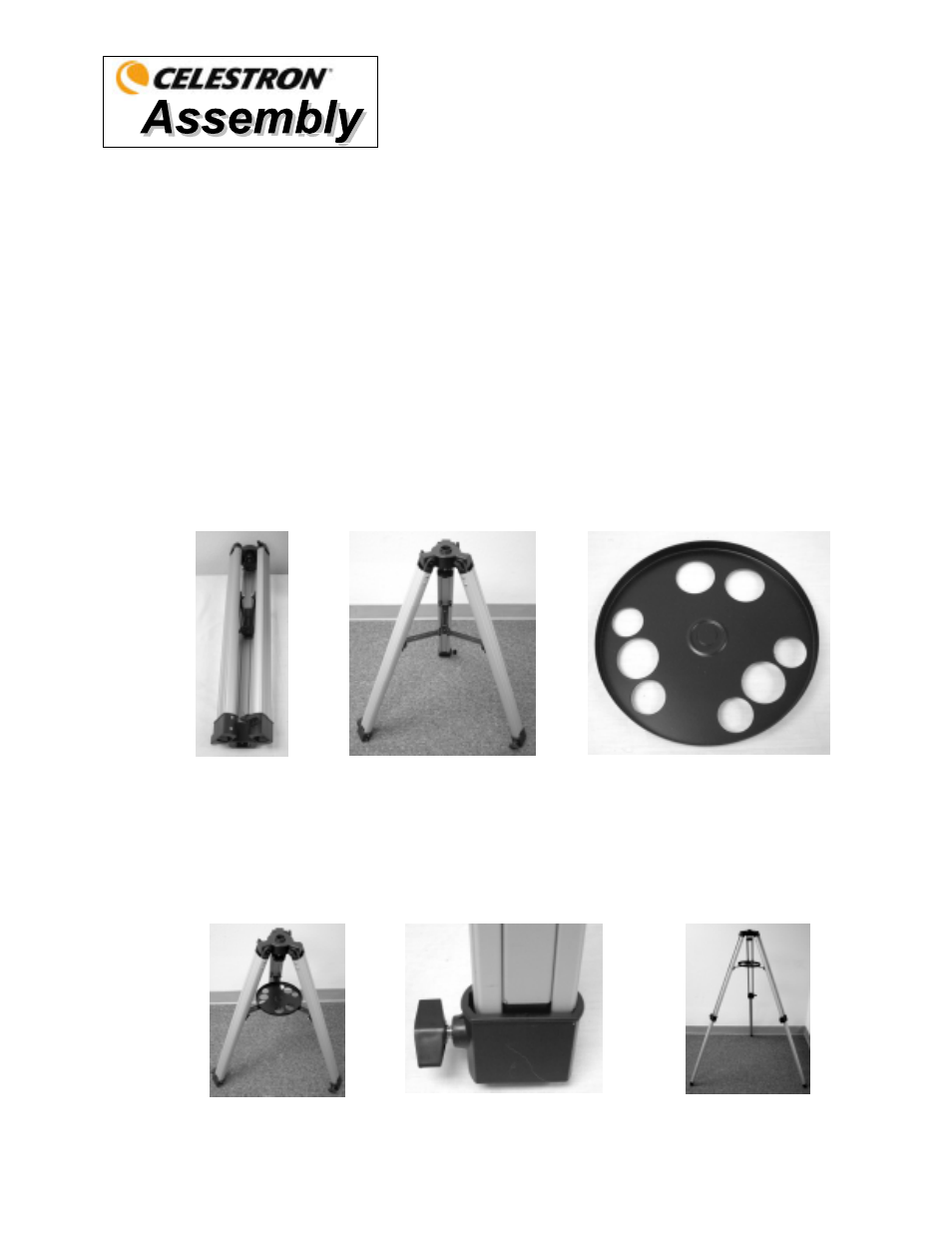Celestron PowerSeeker 70 70mm f/10 AZ Refractor Telescope User Manual
Page 6

6
This section covers the assembly instructions for your PowerSeeker telescope. Your telescope should be set up
indoor the first time so that it is easy to identify the various parts and familiarize yourself with the correct assembly
procedure before attempting it outdoor.
Each PowerSeeker comes in one box. The pieces in the box are – optical tube, tube rings (except 60EQ), German
equatorial mount, counterweight bar, counterweight
,
R.A. & Dec. slow-motion cables, 4mm eyepiece – 1.25”,
20mm eyepiece – 1.25” (erect image for 114EQ & 127EQ), erect image diagonal 1.25” (for 60EQ, 70EQ, and
80EQ), 3x Barlow Lens 1.25”, “The Sky” Level 1 CD-ROM.
S
S
e
e
t
t
t
t
i
i
n
n
g
g
u
u
p
p
t
t
h
h
e
e
T
T
r
r
i
i
p
p
o
o
d
d
1.
Remove the tripod from the box (Figure 2-1). The tripod comes preassembled so that the set up is very
easy.
2.
Stand the tripod upright and pull the tripod legs apart until each leg is fully extended and then push down
slightly on the tripod leg brace (Figure 2-2). The very top of the tripod is called the tripod head.
3.
Next, we will install the tripod accessory tray (Figure 2-3) onto the tripod leg brace (center of Figure 2-2).
4.
On the bottom of the tripod tray is a screw attached to the center. The screw attaches into a threaded hole
in the center of the tripod leg brace by turning it counterclockwise - note: pull up slightly on the tripod leg
brace to make it easy to attach. Continue turning the tray until hand tight – don’t over tighten the tray.
Figure 2-1 Figure 2-2 Figure 2-3
5. The tripod is now completely assembled (Figure 2-4).
6.
You can extend the tripod legs to the height you desire. At the lowest level the height is 26” (66cm) and
extends to 47” (119cm). You unlock the tripod leg lock knob at the bottom of each leg (Figure 2-5) by
turning them counterclockwise and pull the legs out to the height you want & then lock the knob securely.
A fully extended the tripod looks like the image in Figure 2-6.
7.
The tripod will be the most rigid and stable at the lower heights.
Figure 2-4 Figure 2-5 Figure 2- 6
